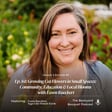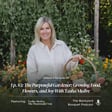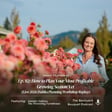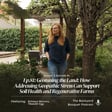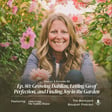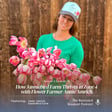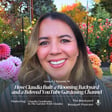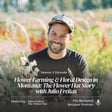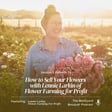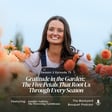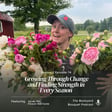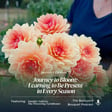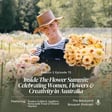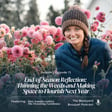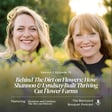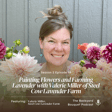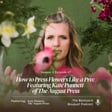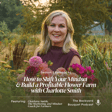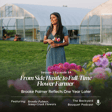
Ep.68: Inside America’s Largest U.S.-Based Flower Farm: Sustainability, Innovation & the Future of Floriculture with Madison Milgard of Continental Floral Greens
What does large-scale flower farming really look like in the United States? In this episode of The Backyard Bouquet Podcast, Jennifer Gulizia sits down with Madison Milgard, Vice President of Brand and Market Strategy at Continental Floral Greens (CF Greens) — the largest U.S.-based flower farm.
Madison shares the inspiring story of her family-owned business, from its roots in Washington’s noble fir forests to stewarding thousands of acres across Oregon, California, Florida, and beyond. She gives us a behind-the-scenes look at how Continental Floral Greens produces millions of stems, the innovations driving sustainability, and why greenery is the unsung hero of floral design.
You’ll learn about:
- How Continental Floral Greens grew from a small tree farm to the largest U.S.-based flower farm
- What sustainability looks like at scale — from recyclable packaging to stewarding 10,000 acres of noble fir
- New dahlia trials with extended vase life and what it means for florists and regional growers
- Why collaboration across farms, wholesalers, and organizations like SustainaBloom is key to the future of floriculture
- Advice for growers who dream of scaling their flower farm (and why resilience + the right team are essential)
Whether you’re a backyard grower, a budding flower farmer, or simply fascinated by the floral industry, this conversation will expand your perspective on what’s possible — and how sustainability and innovation are shaping the future of flowers.
📍 Connect with Continental Floral Greens:
- Website: https://www.cfgreens.com
- Instagram: https://www.instagram.com/cfgreens
- Email Madison: madisonmilgard@cfgreens.com
Enjoying the show?
Please rate & review The Backyard Bouquet Podcast—it helps more flower lovers find us and keeps these conversations blooming!
